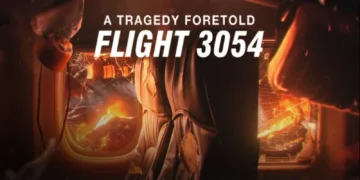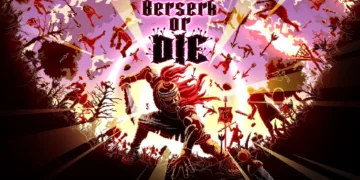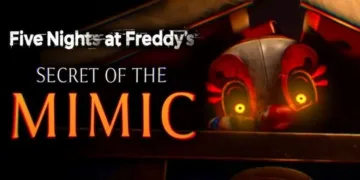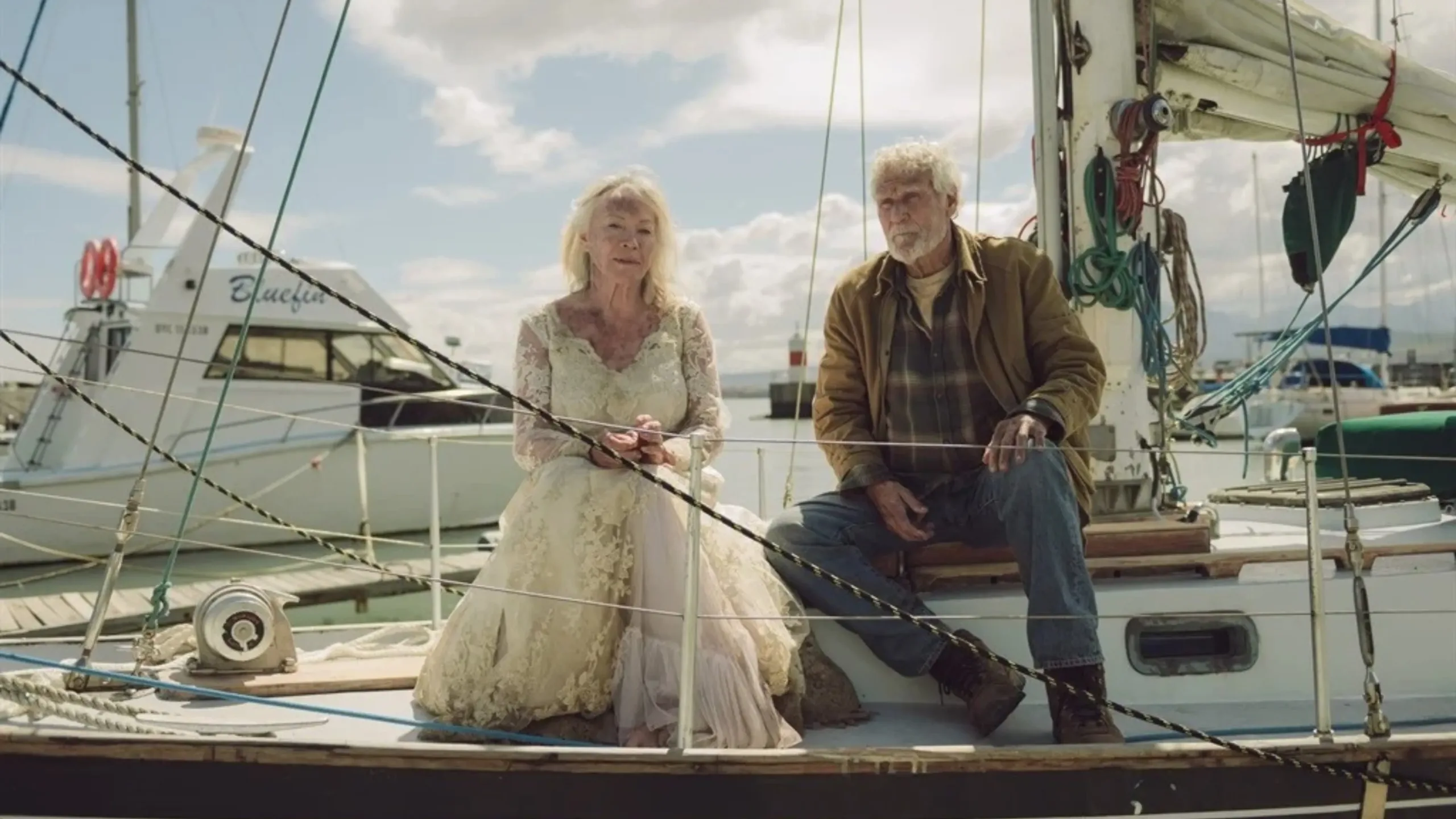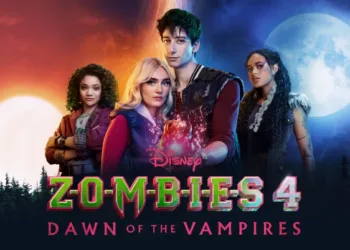At the edge of a long life shared, what is the final duty of love? Christiaan Olwagen’s film A Kind of Madness presents this question not as a whisper but as a defiant act. We meet Ellie and Dan, a couple whose half-century bond is fraying under the strain of her dementia. She resides within the sterile safety of a care facility, a place of quiet, managed decline.
He, undone by guilt and a love that refuses to yield to practicality, makes a decision. He takes her from the home. This act, a kidnapping in the eyes of the world, becomes their final, unsanctioned adventure. They set off in a vintage Ford station wagon, the same model from their youth, turning the open road into a landscape of memory.
The journey immediately establishes the film’s central tension: a rebellious, romantic gesture set against the hard reality of her condition and the frantic fears of the family they left behind. It is a story that is at once deeply sweet and laced with an unshakable sadness.
A Fractured Pursuit
The narrative splits into two distinct, colliding paths, creating a chase that is as much emotional as it is physical. Ellie and Dan’s escape is a poignant odyssey through a landscape of memories only they can see.
Their journey is fraught with peril born from her condition; moments of profound, heartbreaking clarity give way to frightening confusion, where the world becomes an unfamiliar and threatening place. The film masterfully captures the tension of this state, where Dan’s loving gesture constantly risks becoming a catastrophe. Flashbacks to their fiery, youthful romance are woven throughout, showing the foundation of a pact that Dan now seeks to honor in the most extreme way.
Racing behind them is the second, equally desperate story: the pursuit by their three adult children. Their frantic chase is a study in familial conflict under duress. Dan sees the care facility as a place where his wife will “wither away,” a passive betrayal of their vibrant life together.
The children, however, see it as a necessary shield against a world their mother can no longer process. Their reactions form a spectrum of modern anxieties. Lucy, the psychotherapist, is armed with a clinical understanding of every potential disaster, her professional knowledge a heavy burden.
Olivia, a chef, feels the disruption to her own life with a palpable resentment that seems a defense against her own grief. It is the youngest, Ralph, who articulates the painful heart of their dilemma: “Are we keeping them safe or keeping them prisoner?” This question hangs over every scene, turning the family’s pursuit into a desperate search for an answer that may not exist.
The Architecture of Memory
The film’s power is rooted in its bold cinematic language. Director Christiaan Olwagen declines to present Ellie’s condition from the outside; instead, he pulls the audience directly into her fractured consciousness with a style that feels both lyrical and unsettling.
The South African landscape is rendered with a dreamy, almost ethereal quality, its soft color palette suggesting a world tilting into fable. This beauty creates a sharp, poignant contrast with the characters’ internal turmoil.
The aesthetic choices are not merely decorative; they are fundamental to the film’s purpose. The narrative structure mirrors Ellie’s internal state, blending past and present without clear markers. Flashbacks are not just recollections; they are vivid, disorienting intrusions.
Surreal images, chief among them a mysterious opera singer cloaked in red, appear with the logic of a dream. This recurring figure acts as a haunting motif, a fragment of a traumatic memory that Ellie can neither fully grasp nor dismiss.
This technique can be disorienting, a deliberate choice that simulates the experience of a mind losing its anchors to time and place. The sound design aids this immersion, with the score and ambient noise shifting between what is real and what is imagined inside Ellie’s head.
Olwagen’s theatrical roots are evident in the heightened reality and the focus on performance, creating a world where emotions are epic and gestures are grand. The result is a film that does not simply show dementia; it builds a world from its fragments, asking the viewer to navigate its beautiful, broken terrain alongside its characters.
Identity at the Edge of Being
A film this emotionally ambitious rests on the strength of its central performances. Sandra Prinsloo gives a remarkable, physically nuanced portrayal of Ellie, shifting between a state of childlike wonder, deep-seated fear, and frightening panic without losing the core of the character.
Her performance is a masterclass in conveying a mind at war with itself. As Dan, Ian Roberts is a figure of heartbreaking resolve; his face is a map of tenderness, fierce loyalty, and a reckless determination. Their chemistry makes a lifetime of shared history feel immediate and real, a bond echoed with uncanny energy by Ashley de Lange and Luke Volker, the younger actors who portray the couple in their passionate youth.
The supporting cast is uniformly strong. Erica Wessels, Amy Louise Wilson, and Evan Hengst, as the three siblings, create a wholly believable portrait of a family cracking under pressure. Their interactions are a complex dance of old rivalries, deep-seated love, and a shared, anticipatory grief.
They are not merely obstacles to their parents’ journey; they are people grappling with the slow-motion loss of the two people who defined their world. The film offers no easy resolutions to its profound questions. It leaves its audience to think about what constitutes a person when memory dissolves. Does love itself become a form of memory?
Does Dan’s final act honor the woman he knew or ignore the woman she has become? Its refusal to provide simple answers is its greatest strength, offering instead a powerful, unflinching look at commitment at the very edge of life.
“A Kind of Madness” is a drama film released in 2025. It is available to stream on platforms like Amazon Prime Video.
Full Credits
Director: Christiaan Olwagen
Writers: Christiaan Olwagen
Producers and Executive Producers: Hannes Otto, Roelof Storm, Christina Wood, Will Seefried
Cast: Ashley de Lange, Gabe Gabriel, Evan Hengst, Loren Loubser, Sandra Prinsloo, Ian Roberts, Melanie Tafila, Luke Volker, Erica Wessels, Amy Louise Wilson
Director of Photography (Cinematographer): Adam Joshua Bentel
Editors: Matthew Swanepoel
Composer: Kyle Koekemoer
The Review
A Kind of Madness
A Kind of Madness is a deeply moving and artistically audacious film that confronts the painful realities of dementia with fierce emotional honesty rather than simple sentimentality. Anchored by breathtaking lead performances and a bold visual style that places you inside a fracturing mind, it is a powerful, difficult, and unforgettable look at the endurance of love in the face of oblivion.
PROS
- Exceptional, world-class performances from Sandra Prinsloo and Ian Roberts.
- Bold and immersive direction that powerfully visualizes the experience of dementia.
- An emotionally intelligent script that explores profound themes without easy answers.
- Stunning cinematography and effective use of the South African landscape.
CONS
- The non-linear, disorienting narrative may prove challenging for some viewers.
- The emotional intensity and heavy subject matter can be draining.























